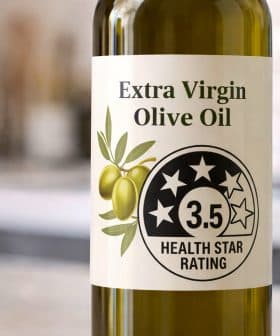Research Suggests Fried Potatoes, Poor Eating Habits Reduce Lifespan
Researchers have found a link between increased mortality and frequent consumption of fried potato foods - but further research is required.
 5.1K reads
5.1K readsA study published in the American Journal of Clinical Nutrition found that consuming fried potato foods like French fries and potato chips is linked to increased mortality, while other preparation methods like boiling and steaming are not. The study, led by Nicola Veronese of Italy’s National Research Council, followed 4,400 adults over eight years and concluded that fried potato consumption may increase mortality risk due to factors like acrylamide formation and trans-fat content.
A recent study published in the American Journal of Clinical Nutrition has revealed that the consumption of fried potato foods (such as French fries, potato chips and hash browns) correlates with an increased risk of mortality in a way that other food preparation methods such as boiling and steaming do not.
The publication is the first to directly address the relationship between fried potatoes and increased mortality. It was undertaken by lead researcher Nicola Veronese of Italy’s National Research Council alongside various professionals from other Italian, Spanish, British and American educational and research institutions.
See Also:Dispelling the Myths of Frying with Olive Oil
The study of a group of 4,400 adults aged between 45 and 79 and monitored their eating habits for eight years using food-frequency questionnaires. On following up after the elapsed period of time, it was determined that participants who consumed fried potatoes at least twice a week or more had an increased risk of mortality, while those consuming unfried potatoes where unaffected.
As the study was observational in nature, researchers admit that it cannot be said that eating fried potatoes directly causes early mortality, and that it would require more research with larger sample sizes of adults to do so. Furthermore, the results were concluded using information gathered from an Osteoarthritis Initiative cohort study that required participants either be overweight or have experienced knee pain or a knee injury over the previous 12 months. It is likely that population sample itself was skewed to include adults who were obese and led a sedentary lifestyle – two factors that could influence one’s early mortality.
In 2016, Susanna Larrson of Stockholm’s Unit of Nutritional Epidemiology (from the Institute of Environmental Medicine at Karolinska Institutet) conducted two prospective cohort studies into the relationship between potato consumption and one’s risk of developing cardiovascular disease. The study found no conclusive link between the two, maintaining instead that any increased mortality observed was more likely to be related to participants’ diets as a whole and not potato consumption in particular.
A previous study by Italy’s Department of Food Science at the University of Napoli Federico II into the relationship between virgin olive oil phenolic compounds and acrylamide formation in fried crisps revealed that the preparation of the potato might be responsible for poor health outcomes rather than the potato itself.
The study found that potatoes fried for prolonged periods at high temperatures have higher levels of acrylamide, a chemical compound many authorities (including the World Health Organization and United Kingdom’s Food Standard’s Agency) believe to be toxic and responsible for increasing a person’s cancer risk.
Acrylamide levels were lowest in potatoes fried on olive oil and higher in potatoes fried in trans-fat rich cooking oils. Trans-fats have been proven to increase the levels of HDL (high density lipoprotein) cholesterol in the blood, increasing one’s risk of cardiovascular disease, heart attacks and death.









